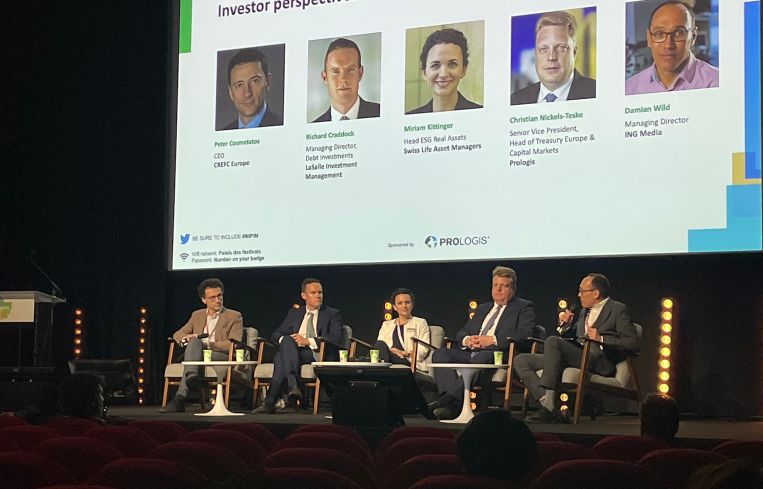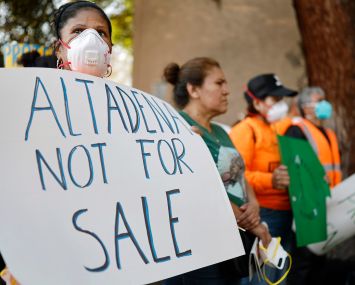US Will Overtake Europe in ESG Measures: MIPIM Panelists
By Nicholas Rizzi March 14, 2023 2:59 pm
reprints
Despite being about two years behind in its environmental, social and corporate governance (ESG) efforts than Europe, the United States will likely be giving the rest of the world ESG lessons in the near future.
European panelists at MIPIM’s “Financing ESG” discussion during the organization’s 2023 convention in Cannes, France, said they expect the U.S. to catch up quickly in ESG regulations and financing, enough so to eventually overtake Europe.
“I think the U.S. will overtake us when you finally realize what a huge opportunity this is,” Peter Cosmetatos, the CEO of the Commercial Real Estate Finance Council in Europe, said during the panel. “Because the U.S. just has the capital markets, it has the innovation, and it has the technology. We need the head start in Europe.”
While some spots in Europe have strict measures in place to spur the real estate industry to take ESG seriously — like the Netherlands requiring buildings to meet a certain energy standard before being allowed to lease or sell — panelists said the U.S. has already started to make some big moves, including proposed rule changes from the Securities and Exchange Commission that would require more ESG disclosures from companies.
“Certain states have done some quite bold, forward-thinking actions,” said Richard Craddock, a managing director at LaSalle Investment Management, pointing to New York City’s Local Law 97 efforts and President Biden’s green subsidies in the Inflation Reduction Act. “Probably in a few years’ time we’ll all be going, ‘Wow, let’s learn from what the U.S. is doing.’ ”
But even if Europe can teach the U.S. now, there are still a lot of problems on that side of the ocean, mainly data. Each panelist complained that the commercial real estate industry still has a lack of high-quality data to understand how green a building truly is. Plus, there are myriad certifications and acronyms — like LEED and EPC — to contend with.
“Data is key, reporting is key [and] harmonized reporting standards,” said Christian Nickels-Teske, head of treasury for Prologis in Europe. “That will take time.”
Some were a bit more blunt in their assessment of the current state of ESG in the industry.
“The solution to all of this is just get the bloody energy data, which is actual energy usage data, and make it mandatory — or at least the default that occupier data is shared with landlords and is shared with landlords’ lenders,” Cosmetatos said. “So you got actual raw data to report rather than relying on someone’s interpretation of that data.”
Lack of data makes it hard for landlords to take steps to green their portfolios. Miriam Kittinger, head of ESG real assets for Swiss Life Asset Managers, said Swiss Life had to stop a popular incentive program aimed at making its tenants use less hot water in buildings because the company had to gather the data manually and then parse through it instead of having a smart reader do it automatically.
Even with the lack of hard data, panelists said that in the past several years, and especially after 2015, lenders in Europe have started to diligently focus on ESG measures and make it a core part of their business.
“There came to a point where it was no longer enough for lenders to just say, ‘Well, we are one step removed from the assets, we don’t control the asset, therefore, we don’t have any direct control over driving the ESG agenda,’ ” Craddock said. “I think that narrative now changed, and lenders realized that there is a collective responsibility.”
But even as ESG has become a huge topic among lenders, the overlying economic conditions hampering real estate have sparked a pullback.
“There’s certainly been a bit of green fatigue,” Cosmetatos said. “For a couple of years … it felt like it was almost the only thing anyone wanted to talk about. And in the last few months — with inflation, with interest rates, with macro challenges — people have wanted to reorient and talk about other things as well.”
Nicholas Rizzi can be reached at nrizzi@commercialobserver.com.



